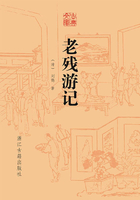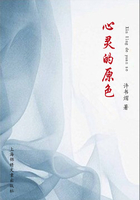The true meaning of these words was not understood by everybody, and was only manifest to those who were initiated in the secret of Bonaparte's designs. He did not accept the offer of the Senate, because he wished for something more. The question was to be renewed and to be decided by the people only; and since the people had the right to refuse what the Senate offered, they possessed, for the same reason, the right to give what the Senate did not offer.
The moment now arrived for consulting the Council of State as to the mode to be adopted for invoking and collecting the suffrages of the people.
For this purpose au extraordinary meeting of the Council of State was summoned on the 10th of May. Bonaparte wished to keep himself aloof from all ostensible influence; but his two colleagues laboured for him more zealously than he could have worked for himself, and they were warmly supported by several members of the Council. A strong majority were of opinion that Bonaparte should not only be invested with the Consulship for life, but that he should be empowered to nominate his successor. But he, still faithful to his plan, affected to venerate the sovereignty of the people, which he held in horror, and he promulgated the following decree, which was the first explanation of his reply to the Senate The Consuls of the Republic, considering that the resolution of the First Consul is an homage rendered to the sovereignty of the People, and that the People, when consulted on their dearest interests, will not go beyond the limits of those interests, decree as follows:-First, that the French people shall be consulted on the question whether Napoleon Bonaparte is to be made Consul for life, etc.
The other articles merely regulated the mode of collecting the votes.
This decree shows the policy of the First Consul in a new point of view, and displays his art in its fullest extent. He had just refused the less for the sake of getting the greater; and now he had contrived to get the offer of the greater to show off his moderation by accepting only the less. The Council of State sanctioned the proposition for conferring on the First Consul the right of nominating his successor, and, of his own accord, the First Consul declined this. Accordingly the Second Consul, when he, the next day, presented the decree to the Council of State, did not fail to eulogise this extreme moderation, which banished even the shadow of suspicion of any ambitious after-thought. Thus the Senate found itself out-manoeuvred, and the decree of the Consuls was transmitted at once to the Legislative Body and to the Tribunate.
In the Legislative Body, M. de Vaublanc was distinguished among all the deputies who applauded the conduct of the Government; and it was he who delivered the apologetic harangue of the deputation of the Legislative Body to the First Consul. After having addressed the Government collectively he ended by addressing the First Consul individually--a sort of compliment which had not hitherto been put in practice, and which was far from displeasing him who was its object. As M. de Vaublanc's speech had been communicated beforehand to the First Consul, the latter prepared a reply to it which sufficiently showed how much it had gratified him.
Besides the flattering distinction which separated him from the Government, the plenitude of praise was not tempered by anything like advice or comment. It was not so with the address of the Tribunate.
After the compliments which the occasion demanded, a series of hopes were expressed for the future, which formed a curious contrast with the events which actually ensued. The Tribunate, said the address, required no guarantee, because Bonaparte's elevated and generous sentiments would never permit him to depart from those principles which brought about the Revolution and founded the Republic;-- he loved real glory too well ever to stain that which he had acquired by the abuse of power;--the nation which he was called to govern was free and generous he would respect and consolidate her liberty; he would distinguish his real friends, who spoke truth to him, from flatterers who might seek to deceive him. In short, Bonaparte would surround himself with the men who, having made the Revolution, were interested in supporting it.
To these and many other fine things the Consul replied, "This testimony of the affection of the Tribunate is gratifying to the Government. The union of all bodies of the State is a guarantee of the stability and happiness of the nation. The efforts of the Government will be constantly directed to the interests of the people, from whom all power is derived, and whose welfare all good men have at heart."
So much for the artifice of governments and the credulity of subjects!
It is certain that, from the moment Bonaparte gained his point in submitting the question of the Consulate for life to the decision of the people, there was no longer a doubt of the result being in his favour.
This was evident, not only on account of the influential means which a government always has at its command, and of which its agents extend the ramifications from the centre to the extremities, but because the proposition was in accordance with the wishes of the majority. The Republicans were rather shy in avowing principles with which people were now disenchanted;--the partisans of a monarchy without distinction of family saw their hopes almost realised in the Consulate for life; the recollection of the Bourbons still lived in some hearts faithful to misfortune but the great mass were for the First Consul, and his external acts in the new step he had taken towards the throne had been so cautiously disguised as to induce a belief in his sincerity. If I and a few others were witness to his accomplished artifice and secret ambition, France beheld only his glory, and gratefully enjoyed the blessings of peace which he had obtained for her. The suffrages of the people speedily realised the hopes of the First Consul, and thus was founded the CONSULATE FOR LIFE.














